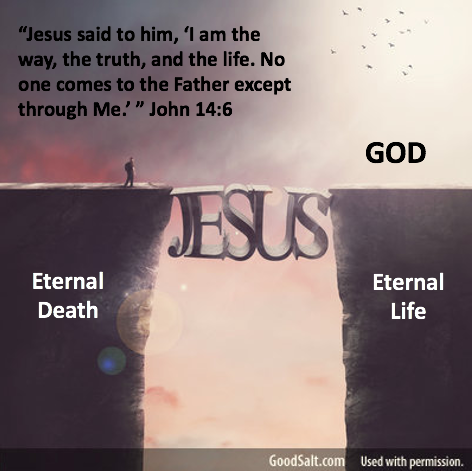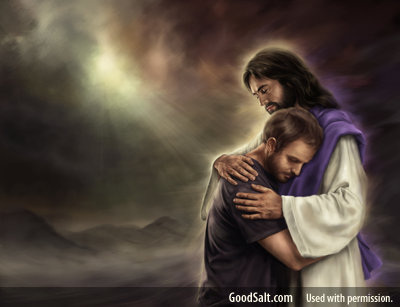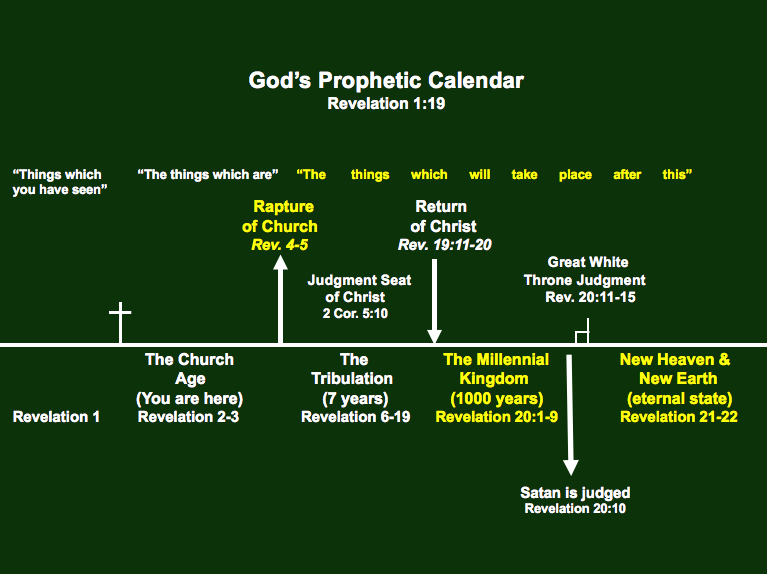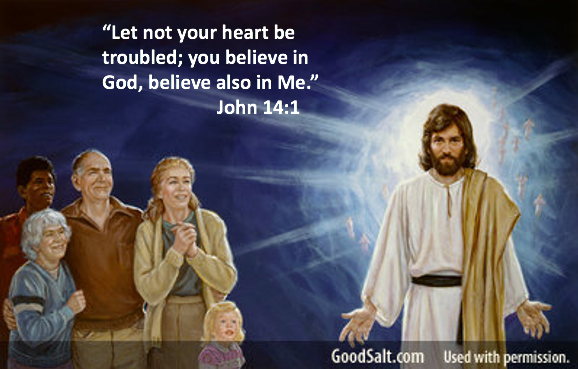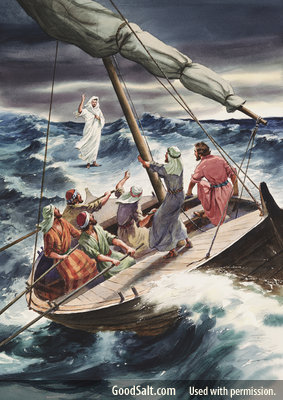“Peace I leave with you, My peace I give to you; not as the world gives do I give to you. Let not your heart be troubled, neither let it be afraid.” John 14:27
I am currently reading a book by John Eldredge entitled “Get Your Life Back: Everyday Practices For A World Gone Mad.” On the back cover of the book it asks, “When was the last time you felt carefree?” For some of us it may be impossible to remember such a time because we are constantly in a rush because we prefer distraction. Eldredge writes, “The more distracted we are, the less present we are to our souls’ various hurts, needs, disappointments, boredom, and fears. It’s a short-term relief with long-term consequences. What blows my mind is how totally normal this has become; it’s the new socially acceptable addiction.” 1
One of the biggest distractions in our culture today is the phone. We can’t leave home without it. We can’t sleep without it. Unfortunately, some people cannot drive their vehicle without looking at it. When our phone notifications sound off, everything else comes to a halt! I learned from Eldredge today that every notification triggers the brain’s learned response to check out what news had just come in. He quotes from Susan Weinschenk’s article, “Why We’re All Addicted to Texts, Twitter, and Google,” in Psychology Today, September 11, 2012:
“Dopamine causes you to want, desire, seek out, and search…. It is the opioid system (separate from dopamine) that makes us feel pleasure…. The wanting system propels you to action and the liking system makes you feel satisfied and therefore pause your seeking. If your seeking isn’t turned off at least for a little while, then you start to run in an endless loop [Dopamine Loop]. The dopamine system is stronger than the opioid system. You tend to seek more than you are satisfied…. Dopamine starts you seeking, then you get rewarded for the seeking which makes you seek more. It becomes harder and harder to stop looking at email, stop texting, or stop checking your cell phone to see if you have a message or a new text…. The dopamine system doesn’t have satiety built in. It is possible for the dopamine system to keep saying ‘more more more,’ causing you to keep seeking even when you have found the information.” 2
We live in a society where people think you are crazy if you turn your phone off or fast from social media. But what would the Lord Jesus think of such practices? I believe He would applaud such disciplines because He understands that the world does not offer the kind of peace God wants His people to experience. To experience God’s peace, we must make space for God in our lives.
We are learning from Jesus how to calm our troubled hearts in a chaotic world. The first way is to focus on the promise of insight from the Holy Spirit (John 14:25-26). The second way to calm our troubled hearts is by focusing on THE PEACE OF CHRIST (John 14:27). Jesus not only promised the help of a Divine Teacher (John 14:26), but He also gave them peace. “Peace I leave with you, My peace I give to you; not as the world gives do I give to you. Let not your heart be troubled, neither let it be afraid.” (John 14:27). Christ refers to two kinds of peace in this verse. The first kind refers to His work on the cross. “Peace I leave with you.” The word “leave” (aphiēmi) implies something that Jesus does. Christ’s death on the cross would provide eternal “peace with God” (Romans 5:1) for us because all our sins would be forgiven (Acts 10:43; Colossians 2:13-14). The Greek word for “peace” (eirēnēn) “is the spiritual well-being that results from being rightly related to God through Jesus Christ.” 3
Through His death on the cross, Jesus conquered Satan’s control of death (cf. Hebrews 2:14-15). Satan can no longer use peoples’ fear of death to enslave them to his will. Christians can now face death with the same confidence in God the Father that Jesus had (cf. I Peter. 2:21-24). Believers are assured of peace with God forever (cf. Colossians 1:19-21). “Having made peace through the blood of His cross” (Colossians 1:20b) means causing God’s former enemies to become His children by faith.
Who are God’s enemies? “And you, who once were alienated and enemies in your mind by wicked works, yet now He has reconciled.” (Colossians 1:21). Paul is referring to people as God’s enemies in this verse. You and I were His enemies before the Cross. “All we like sheep have gone astray; we have turned, everyone, to his own way; and the Lord has laid on Him the iniquity of us all.” (Isaiah 53:6). We need to be reconciled to God because of our sin. God does not need reconciling to us, we need reconciling to God. We turned away from God. He never moved. We moved. The people God created rebelled against their Creator and sinned so that death spread to all people because all sinned (Genesis 3:1-7; cf. Romans 3:23; 5:12-14, 18a).
Christ distinguishes His peace from the kind of peace the world can give – “not as the world gives do I give to you.” (John 14:27b). The world cannot offer eternal peace with God. The world denies that people need to be reconciled to God. The world says that people are inherently good because they are created in the image of God. “Because God loves everyone,” the world says, “There is no need for reconciliation with God.” The world offers a false peace to people. Sin has distorted God’s image in people. Some churches deny this because the world has influenced them to believe that people are inherently good and do not need a Savior.
The second type of peace in verse 27 is the kind that Jesus enjoyed on earth. He says, “My peace I give to you.” In the context (cf. John 14:21, 23), this peace of Christ’s is given to obedient believers. It arises from a life of faith in God. It refers to a calmness “that would come to their hearts from trusting God and from knowing that He was in control of all events that touched their lives.” 4 The world cannot give this kind of peace to us either.
The world offers a false peace that is deceptive and misleading. For example, a cartoon shows a man relaxing on his hammock near a tropical ocean. The sea appears to be as smooth as glass. A light breeze keeps the man comfortable. With his hand outstretched, he says to his wife, “Honey, hand me my tranquilizers, please.” This man has peace all around him, but he has no peace in his heart. The promises of the world are empty and powerless. The world says that more money, more possessions, more pleasure, more accomplishments, and power and fame will result in more peace. But we know of people with all these things who do not have inner peace.
Before we can possess this kind of peace, we must first receive peace “with God” through faith in Jesus for eternal life (Romans 5:1). Christ’s peace does not mean the absence of a storm. Jesus Himself was “troubled” (John 12:27) when He looked ahead to His crucifixion. He was “troubled” when He focused on Judas’ betrayal (John 13:21). Most people can be at peace when nothing is wrong. But Jesus is speaking of peace in the midst of the storm. This peace is a deep-seated calmness that stems from Christ’s presence and purpose in our lives. On the surface, you may feel uneasy and anxious in the midst of life’s storms, but deep down in your heart there is a calmness because you believe God is in control of all events.
For example, there may be a storm blowing over the surface of the ocean. But deep beneath the surface there is a calmness that is unaffected by the storm above. Jesus does not merely wish His disciples peace; He gives them His peace. No matter how troubled your heart is, and some of us may be deeply troubled – Jesus’ peace can calm your heart. Christ can give us peace in the midst of tribulation – at a time when we shouldn’t have any peace. This, of course, doesn’t come from the world.
It is “the peace of God, which surpasses all understanding” (Philippians 4:7). When you face a storm, talk to Jesus Who can calm the storm in your heart with His spoken word. The One who calmed the wind and the waves with the words, “Peace, be still!” (Mark 4:39), can also calm the emotional winds and waves that trouble our hearts. Keep your mind focused on Him. The Bible promises, “You will keep him in perfect peace, whose mind is stayed on You, because he trusts in You.” (Isaiah 26:3).
Next Jesus said, “Let not your heart be troubled, neither let it be afraid.” (John 14:27c). In the coming hours, the disciples would have good reason to be “troubled.” Likewise, we will have experiences that prompt us to be afraid. But with a sovereign God ruling the world and “the peace of Christ” ruling in our hearts (cf. Colossians 3:15), we can overcome the storms that often trouble our hearts. 5
Prayer: Lord Jesus, I am eternally grateful for the peace I now have with God which You made possible through the shedding of Your blood on the cross for all my sins. The world offers temporary peace through denial and escapism, but You offer lasting peace that is grounded in Your presence and purposes. Your peace escapes me when I seek to control situations and people. But when I surrender everything and everyone to You and refocus on Your promises, Your peace that surpasses human understanding floods my soul. Thank You for keeping Your promises. In Your mighty name I pray. Amen.
ENDNOTES:
1. John Eldredge, Get Your Life Back: Everyday Practices For A World Gone Mad (Nashville: Thomas Nelson, 2020), pg. 47.
2. Ibid., pg. 46.
3. J. Carl Laney, Moody Gospel John Commentary (Chicago: Moody Press, 1992), pg. 265.
4. J. Dwight Pentecost, The Words & Works of Jesus Christ, (Grand Rapids: Zondervan, 1981), pg. 440.
5. Adapted from Tony Evans, CSB Bibles by Holman. The Tony Evans Bible Commentary (B&H Publishing Group. Kindle Edition, 2019), pg. 1804.


